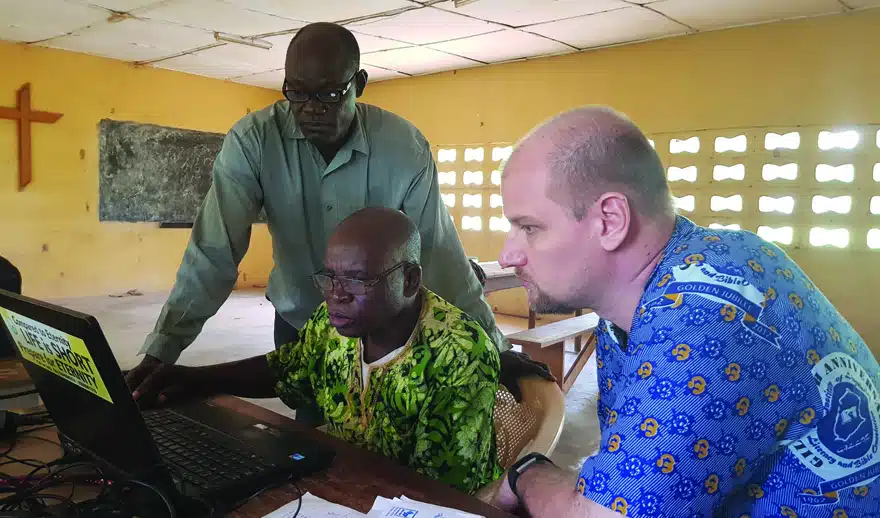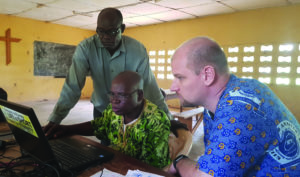Are You Getting the Full Value From Your IT Department?

By Paul Federwitz
We have come to depend on technology in every aspect of our work. I have watched this firsthand as an MK and now a missionary. Growing up in a small village in Liberia, my dad worked with a team doing the Bible translation on paper. In the evenings my mom would type up the current day’s work on a typewriter that had been manually converted to handle the special characters of the local language. The height of technology was using the two-way radio to check in with our office in the capital city. Now we use technology not just to communicate with our coworkers, but to turn in receipts, interact with our donors, and even share the message of Christ through the web and apps on our phones.
Technology is expensive. Computers, servers, and countless other devices need to be replaced when something smaller and better comes out, or when it simply stops functioning. Software is no longer something we purchase, but is a subscription that comes with frequent updates that have to be rolled out and people trained. We don’t seem to “own” technology anymore, we are just its handlers. And those professional handlers, the IT staff, can cost a lot of money by themselves.
Is IT just a necessary evil that every organization has to put up with? Is it the price that we have to pay because we cannot do our work without it? Is there a way to take this department which costs so much and turn it into a strategic advantage?
The key issue that we have to address is how closely IT is aligned with our core ministry. Does the value that it provides stop at keeping business systems going, or does it flow into all of the goals of the organization? As I work with IT people from many different organizations, unfortunately I have seen so many who are standing on the sidelines simply reacting to the questions and problems that come up. Some are on there by their own choice, others are there because the organization does not understand how to use them.
There are two major resources that IT people bring to the table. First, they know technology. In a world where technology is changing at an ever increasing rate, here we have a group of people who get excited about learning about the next great thing. Second, they know your organization from top to bottom. The same people are helping everybody from front line workers to the CEO with their problems. They have a view across departments in a way that nobody else does. They can see what is working and are very aware of what is either failing or is grossly inefficient.
The true value is wrought from IT when they are fully connected to the mission of the organization. I like how Otto Berkes, the Chief Technology Officer for Computer Associates puts it, “Today, I think and operate as a business leader who also has the expertise to be able to use technology effectively to realize business potential.” That is where we want IT to be, somebody who thinks about organizational goals first, and technology only as a way to meet them.
To do this, we have to get IT people, and especially IT leaders, out of the IT department. Derek Hutson talks about a CIO that physically moved his office next to that of his boss so that he could better understand the business needs. I believe that IT leaders should be spending as much time in organizational strategy meetings as they spend in technology meetings. Please also take the time to mentor an IT person. They have a lot to learn about how the mission functions and where it is going. If you also listen to them, you might just learn a few tricks to make your tech life easier.
When IT is thinking about mission strategy first, the organization gets the full value from this expensive resource. IT people are able to apply their research on new technology and their understanding of struggles that other people are having, and come up with creative solutions to problems you may not even know you are having.
IT can bring a lot of value to your organization, but only if it is fully invested and engaged with all aspects of your ministry.
Paul Federwitz manages IT for Lutheran Bible Translators. Based in Ghana, his interests range from business process reengineering to using Android more effectively in the translation process. You can follow his personal blog about technology in mission and the role that IT plays at http://pafederwitz.wordpress.com.
This article is submitted by Paul Federwitz of Lutheran Bible Translators. Lutheran Bible Translators is a Missio Nexus member. Member organizations can provide content to the Missio Nexus website. See how by clicking here.






